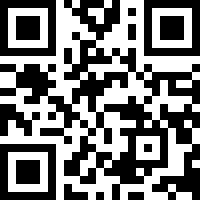By Camille Dang
Obesity is a medical issue that has been drastically on the rise in the last several decades, having nearly tripled the number of people it affects from 1975 to 2020. Recent studies show that a shocking 650 million or more people aged 18 or older are labeled as obese and more than 340 million adolescents aged 5 to 19 are considered either overweight or obese. According to The Centers for Disease Control and Prevention (CDC), in addition to affecting the way one’s body looks, obesity often leads to medical conditions such as “heart disease, stroke, type 2 diabetes and certain types of cancer that are some of the leading causes of preventable, premature death.” In fact, obesity is responsible for approximately 4.7 million premature deaths every year, making it particularly important to monitor patients struggling with obesity.
During first-time hospital visits, obese patients can be expected to perform several physical examinations, talk with doctors about potential health problems and a possible need for exercise programs or weight-loss medicine, and take several tests for diabetes, cholesterol levels, and many more. Even during follow-up visits, doctors often keep up with the patients’ progress by giving them physical exams, discussing progress, and giving them physical tests if necessary.
However, during this pandemic, it is becoming more difficult than ever to drive to a hospital and get a regular checkup as there is a high chance of patients or health care workers contracting Covid-19. Most hospital settings are indoors and require close contact for discussion and examination, which, according to recent studies regarding airborne Covid-19 transmission, are ideal settings for Covid-19 transmission.
Remote patient monitoring (RPM) is an emerging viable solution for obese patients that we can avail of not only during this current pandemic, but also for the years to come.
DrKumo is an RPM and telehealth-based branch of tech startup IDLogiq that focuses on using the latest and highly advanced [AADJ3] technology in order to remotely monitor patients continuously. In an online environment in which patients are being monitored 24/7, doctors will be able to much more effectively understand patients’ vital signs with a more holistic approach as opposed to face-to-face, monthly (or weekly, yearly, etc.) checkups at a local clinic or hospital, which give doctors only a snippet of the patients’ true medical state. With DrKumo’s RPM technology, patients can use technology embedded in the DrKumo smartwatch, the DrKumo scale, or other DrKumo products to measure blood pressure, weight, heart rate, blood sugar levels, and many other vitals and ensure the patient is healthy at all times. The DrKumo scale, unlike other simple weighing scales, are able to measure: heart rate, body weight, body water percentage, body fat percentage, body mass index, bone mass, visceral fat, muscle mass, basal metabolic rate, fat-free body weight, protein, subcutaneous fat rate, obesity level, body type, and standard weight.
In particular, if obese patients are struggling with any of the aforementioned obesity-related medical conditions, it is important to constantly monitor the patients’ vitals and ensure that they can easily contact a clinician or doctor in the case of a medical emergency or whenever they are in need of medical assistance. In addition, patients and their family will be spared the inconvenience of traveling constantly just to undergo regular check ups with a doctor as DrKumo’s RPM technology will be accessible in their own home. Not to mention, with regular hospital visits come costly hospital bills; according to the CDC, “The estimated annual medical cost of obesity in the United States was $147 billion in 2008; the medical cost for people who have obesity was $1,429 higher than those of people with normal weight.”Using DrKumo’s RPM technology will likely curb the number of hospital bills the patient’s family will need to pay. Furthermore, patients are directly involved with their health; they are encouraged to ask questions they may have and constantly communicate with clinicians and doctors in order to gain a better understanding of their condition and treatment.
During this pandemic, going to the hospital is risky and difficult. Not only does using DrKumo’s RPM ensure that obese patients are at less risk for contracting Covid-19, it also allows doctors and patients to have a more time-effective meeting as the doctor will already know the important statistics, such as patients’ resting heart rate and weight in situations where face-to-face checkups are necessary.
In a world where RPM doesn’t exist, it is almost completely up to the patient to contact the doctor for assistance. The doctor has no means of knowing the state of the patient at any time during the day, and therefore can’t provide any advice for the patient, even if that advice is greatly needed.
Luckily, with DrKumo’s RPM technology, doctors and clinicians can contact patients to provide them with information or advice or whenever else they deem it necessary. By allowing patients to receive a state of continuous care and enabling patients to contact doctors whenever necessary or vice versa, DrKumo’s RPM fosters a patient-centric environment, in which the needs of the patient are first priority. For example, DrKumo can enable the clinician to notice when patients ingest or administer their medicine or if they are several hours late to doing so. By allowing a system in which patients can receive reminders for medication, DrKumo increases medication adherence and improves quality of care for obese patients, cultivating an environment in which patients can follow treatment rules efficiently and effectively.
Obesity is a health condition that is becoming increasingly serious as the years pass. During this pandemic especially, it is difficult to monitor obese patients with and without obesity-related medical conditions. With DrKumo RPM technology, obese patients are receiving a more cost-effective solution with great quality of care, better communication with doctors and clinicians, increased medication adherence, and constant monitoring of vitals all at the convenience and comfort of their own home.


